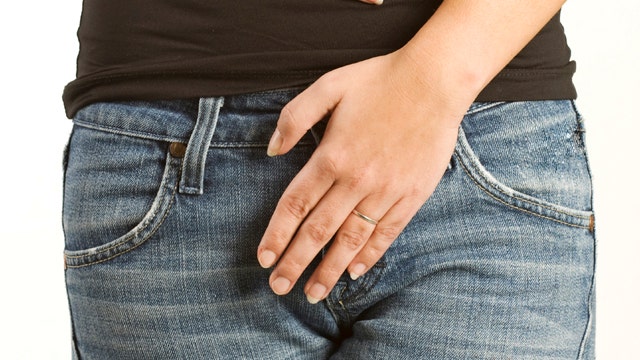Solutions for an embarrassing problem
Vaginal dryness affects 40 percent of post-menopausal women but it’s not something they like to talk about. Dr. Manny speaks with Dr. Jennifer Landa about ways to alleviate this painful condition
It is not an unnatural occurrence – 40 percent of postmenopausal women experience vaginal dryness and an undetermined number experience this condition following childbirth and breast cancer. These numbers remain a mystery, because so few women are willing to discuss this issue with a doctor and many surveys exclude the latter two groups.
Vaginal lubrication is linked to insufficient levels of estrogen, which tend to plummet during menopause, following pregnancy and with treatments for breast cancer. This condition, however, is something women should be discussing with their doctors. Vaginal dryness can be a result of more serious conditions, such as the autoimmune disease, Sjogren’s syndrome, or it could be caused by certain medications, like antidepressants.
Regardless of the cause, intercourse can become very painful. Women may lose the desire to have sex or endure unhealthy pain in the attempt to appease their partner. The impact on your sex life and health –mental and physical – is significant.
There are several things women, particularly menopausal women, can do to find relief from vaginal dryness naturally – and it comes down to simple things you already know are important to caring for your health. These are habits you should make a priority – vaginal dryness is a sign that something is awry inside your body.
1. Hormone balance
Hormonal shifts can occur throughout the female lifespan, but none are as great as the rapid, and often sudden, decline that accompanies menopause. During perimenopause progesterone begins to decline and some women may experience a relative increase in estrogen. When menopause hits, however, estrogen plummets as well. Among the responsibilities of estrogen is vaginal lubrication, which is why vaginal dryness is common in postmenopausal women.
Hormone therapy can bring relief – restoring estrogen and progesterone levels to normal levels can bring back the natural mechanism that supports vaginal lubrication. Studies have shown that in addition to treatment with the estradiol, the estrogen hormone, estriol, is also very effective.
2. Nutrition
Eat plenty of healthy fats. Fats are essential for making hormones - just make sure you choose the healthy ones, like mono- and polyunsaturated fats. Good sources of these fats include walnuts, almonds, olive oil, avocados and certain types of fish. Just remember, fats should consume no more than 20 percent of your diet.
3. Hydrate
Keep your body hydrated. Hydration keeps the body’s mucous membranes moist and functioning. Alternative beverages, like coffee, soda and alcohol, dehydrate the body further. Menopausal women or women approaching menopause, often have trouble ridding these toxic substances from their body, furthering the effects of dehydration throughout the body and exacerbating vaginal dryness.
4. Avoid irritants
Feminine sprays, douches and antibacterial and deodorant soaps steal moisture from the delicate tissues of the vagina and surrounding tissue. Choose soaps that can maintain the pH balance of the vaginal tissue. Look for a moisturizing, hypoallergenic soap with no dyes or fragrances that is non-alkaline and pH balanced.
5. Lubricate
There are many lubricants on the market today. Some have even been specially formulated for menopausal women. Just be sure to choose a water-based formula. There are also all-natural products you can use, like extra virgin coconut oil, which offers a pleasant odor in addition to adequate lubrication. In some cases, you may simply need to learn to lubricate yourself – moisture can pool in the back of the vagina, making it impossible to reach during sexual intercourse. In this instance, you can use your finger to pull the moisture down and coat the dry surfaces.








































